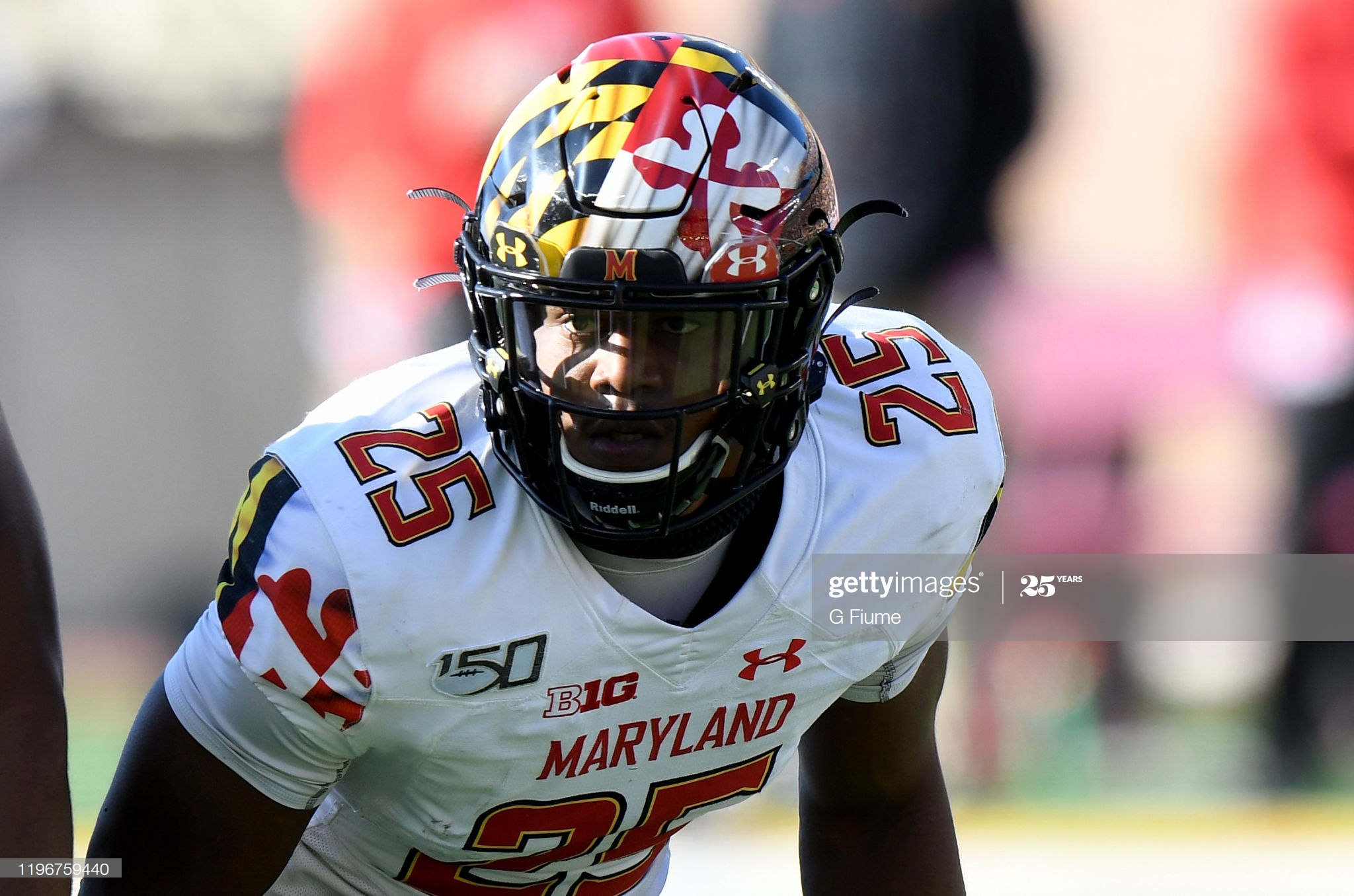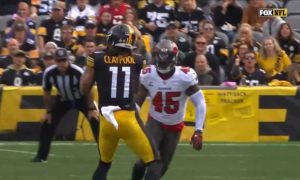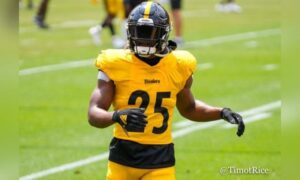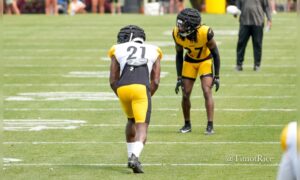Part of Antoine Brooks’ scouting report paints him as a safety with limitations in his athleticism. But he was one such a great athlete that he actually played quarterback in high school, with success, before sustaining a severe injury that threatened the future of his football career, and saw him transition his game to the defensive side of the ball.
It’s probably not hard, though to see the influence of playing the quarterback position in his history show up in his game. For one thing, he always ends up being around the ball, and that’s not a coincidence or a testament to his blazing speed. It’s because he knows where the plays are going. And he knows that because he is able to think like a quarterback.
The sixth-round pick recently spoke to Missi Matthews for the team’s website about his transitioning into the NFL and similar topics, and at one point in the discussion, she asked him just this question—specifically, how the experience of playing quarterback helps him in his role on the defensive side of the ball.
Quarterback, you’ve got to know what the defense is running, what’s the holes in the defense, so it helped me a lot, knowing where I need to be. The quarterback has to figure out where the nickel is, where the backside safety is, and stuff like that. That’s stuff I already know. So if me and my safeties and corners plan on faking out the quarterback, things like that helps you. You’re showing that we’re blitzing when we’re really in a zone. Showing that we’re in man, but we’re really blitzing. It’s just stuff like that that can mess with a quarterback’s head, because I’m already thinking as a quarterback.
Brooks comes to the team at a time in which they have two starters locked int at safety with Terrell Edmunds and Minkah Fitzpatrick, but are slim on depth, with only Jordan Dangerfield and Marcus Allen returning with any sort of experience.
It’s also worth noting that none of the team’s reserve linebackers—most notably Ulysees Gilbert III and Robert Spillane—have any defensive snaps in their short careers. The team has talked about Brooks playing in a sort of hybrid role between the two positions.
Of course, he has a long way to go before he gets penciled into any defensive gameplans. For starters, he has to make the roster, and that’s never guaranteed for a sixth-round pick—even for a long snapper on a team with no incumbent long snapper, as Colin Holba found out a few years ago.
But one great way to help yourself make the roster as a defensive player is to consistently be around the ball, and Brooks’ diagnostic abilities should help him show up well in that area during the offseason process.








